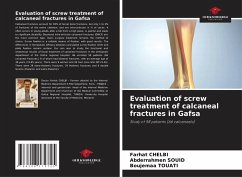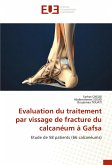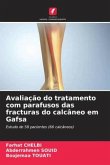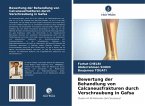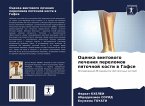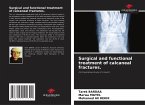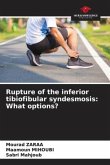Calcaneal fractures account for 65% of tarsal bone fractures, but only 1 to 2% of fractures of the entire skeleton, and are intra-articular in ¾ of cases. It often occurs in young adults after a fall from a high place, is painful and leads to significant disability. Displaced intra-articular calcaneal fractures (DIACF) are the most common type. Open surgical treatment remains the method of choice. Screw fixation is a reliable means of fixation, with good results. The differences in therapeutic efficacy between cannulated screw fixation (CSF) and plate fixation remain unclear. Our aim was to study the functional and anatomical results of facial treatment of calcaneal fractures in the orthopedic department of the Gafsa regional hospital. We enrolled 58 patients (66 calcaneal fractures), 8 of whom had bilateral fractures, with an average age of 38 years (15-85 years). There were 9 women and 49 men (sex ratio M/F=5.44). There were 28 extra-thalamic fractures, 34 thalamic fractures and 6 double lesions (thalamic and extra-thalamic).
Bitte wählen Sie Ihr Anliegen aus.
Rechnungen
Retourenschein anfordern
Bestellstatus
Storno

